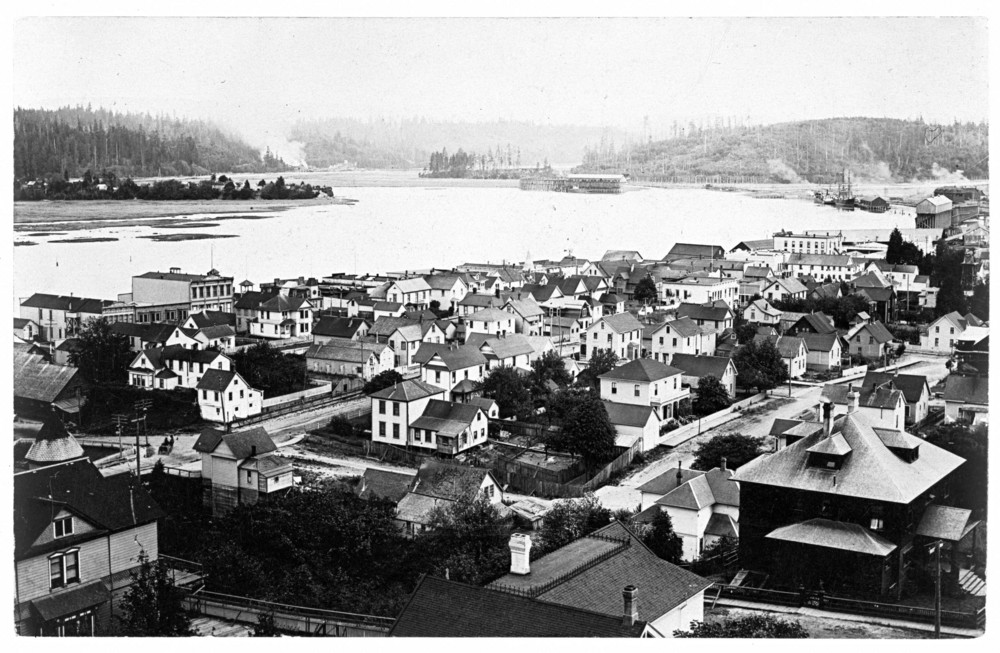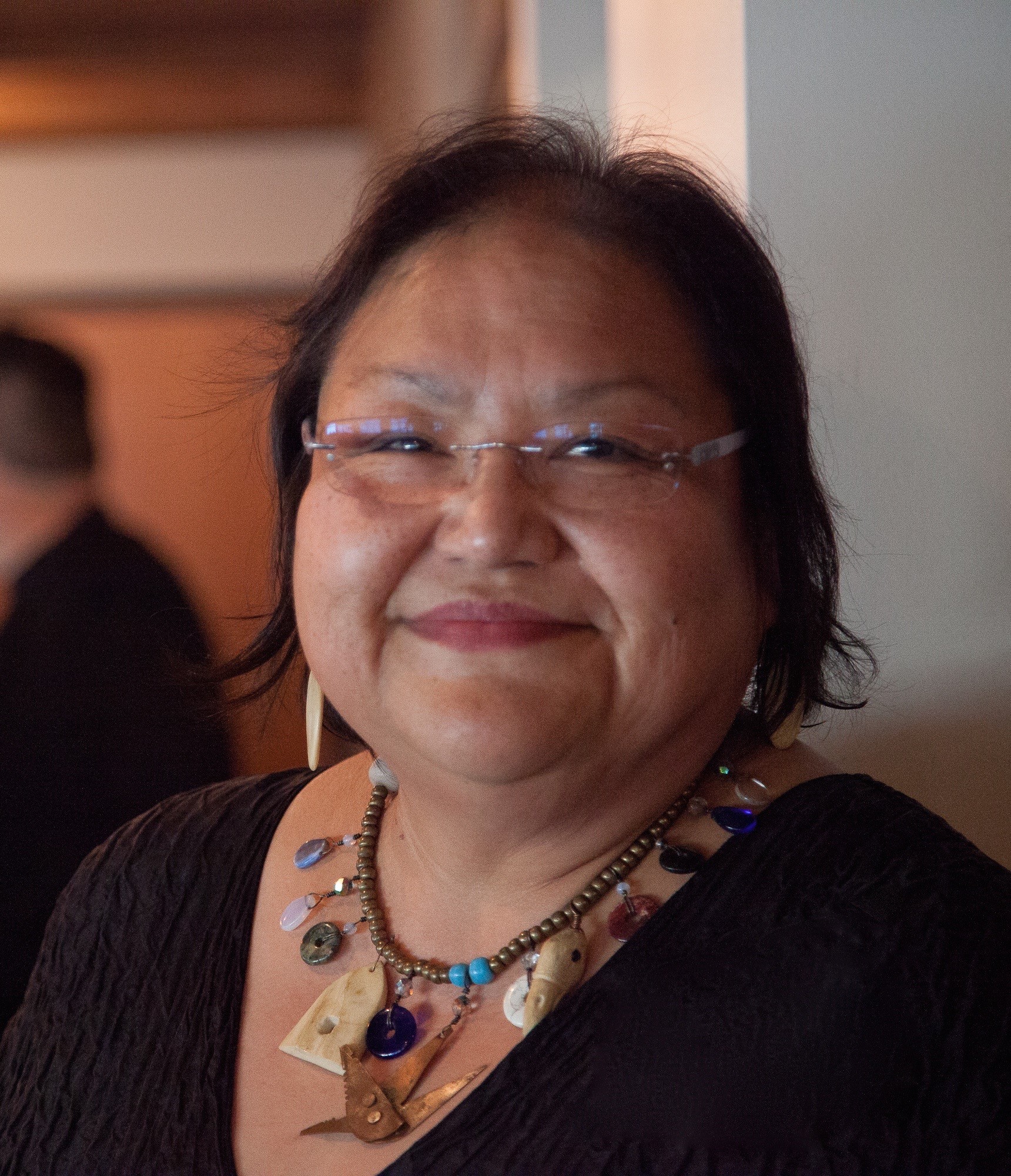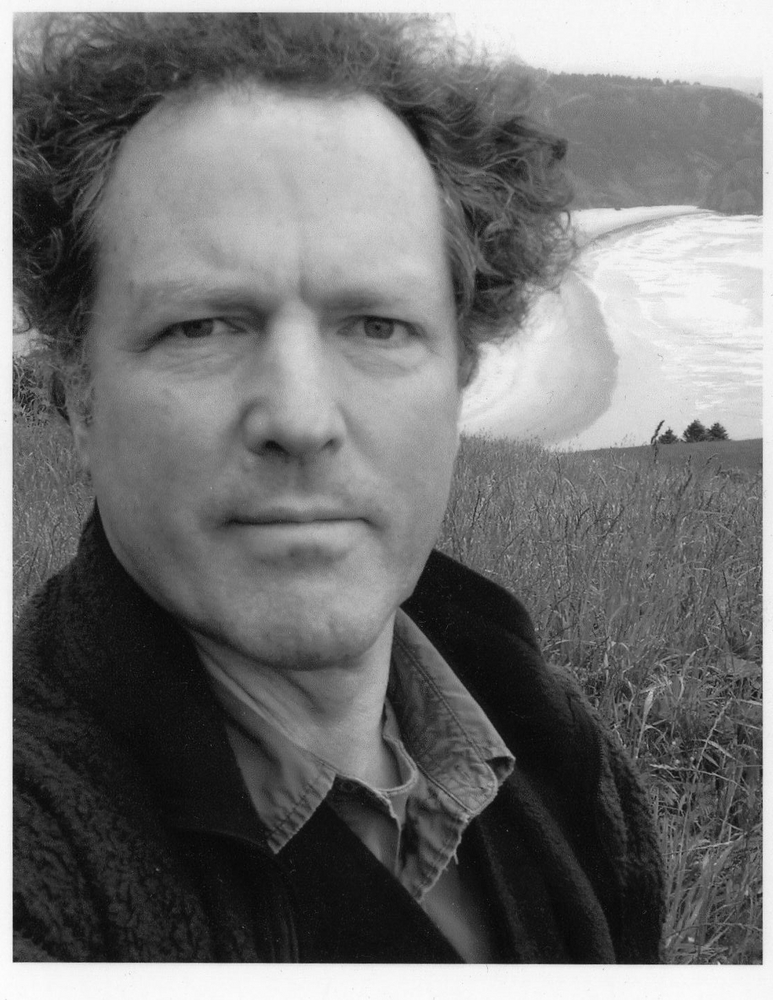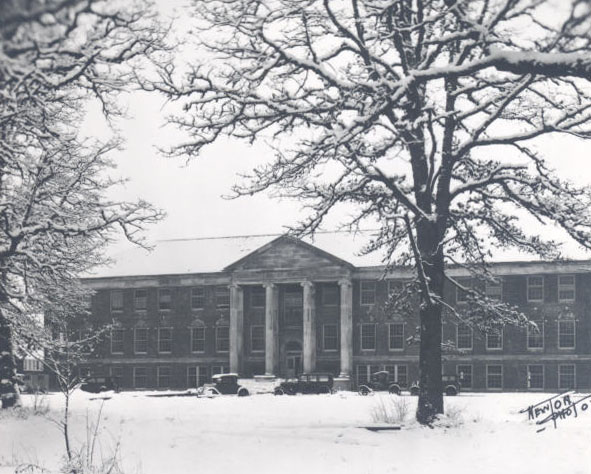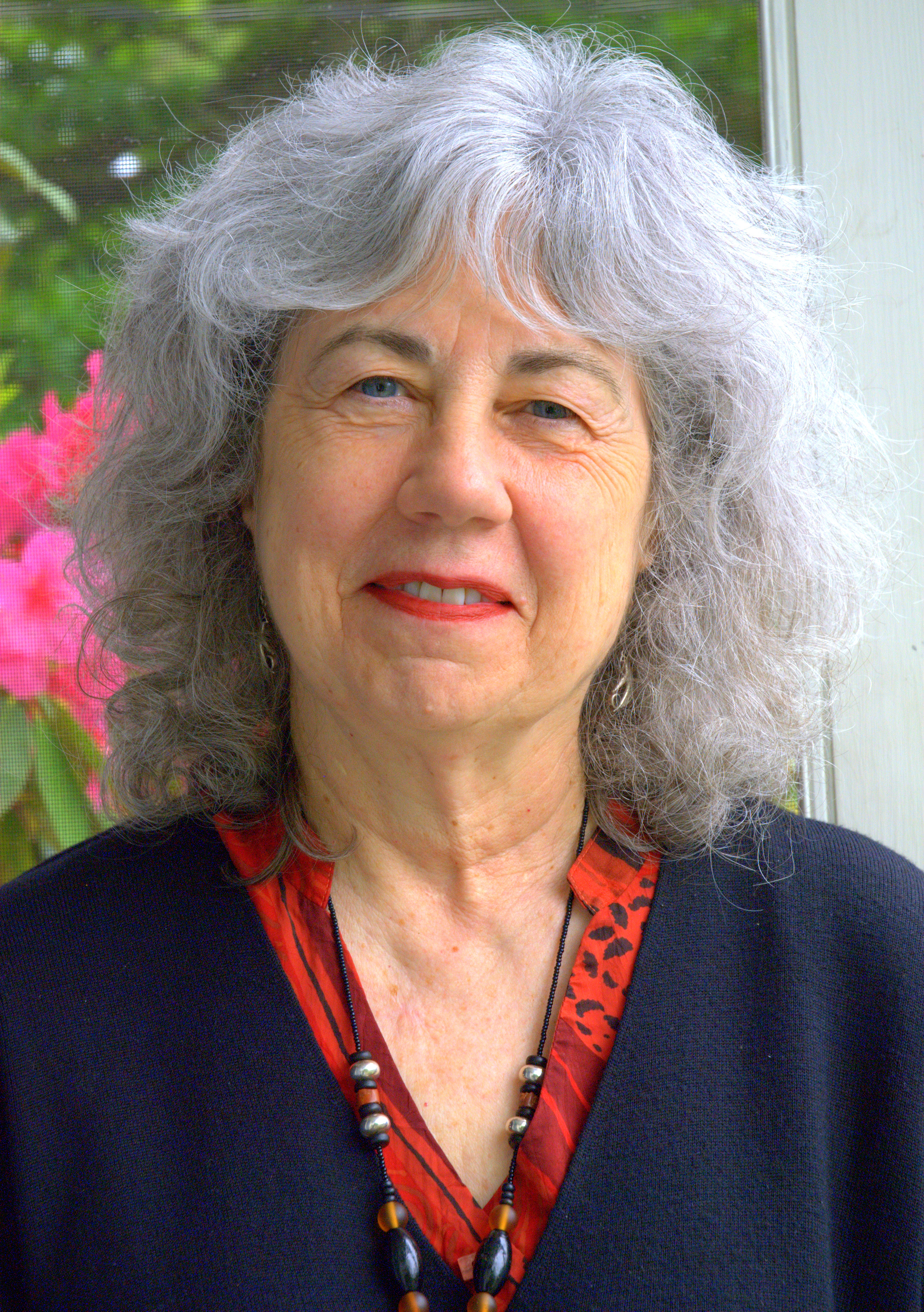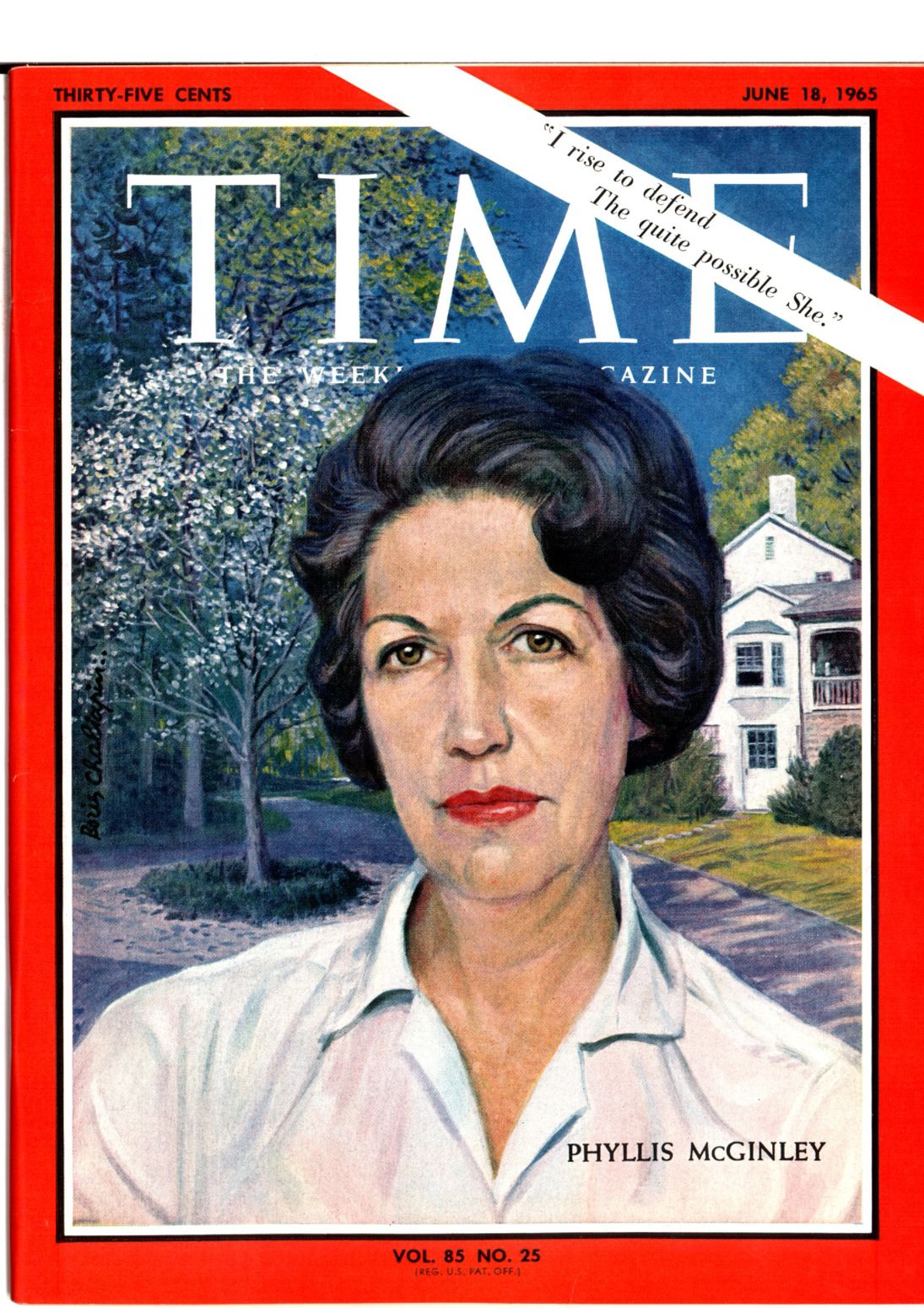Poet, essayist, and educator Barbara Drake makes the places in Oregon where she has lived central to her writing. Her poetry and essays, many of them focused on Coos Bay and rural Yamhill Valley, are significant contributions to the state's literature of place. For twenty-five years, she taught creative writing in Yamhill County at Linfield College in McMinnville.
Barbara Robertson, the first of four siblings, was born on April 13, 1939, in Abilene, Kansas, where her parents Monica (Lorson) and James Ward Robertson ran her grandfather Robertson's sheep farm. In 1941, the family traveled on Route 66 to California and then north to Oregon, where Ward Robertson found work with the West Coast Telephone Company. Over the next decade, the family lived in various Oregon and Washington towns until, in 1951, they settled in Coos Bay on the central Oregon Coast.
After graduating from Marshfield High School in 1957, Robertson attended the University of Oregon, where, four years later, she received a Bachelor of Arts degree in English literature. She then entered the university’s MFA program, completing her first year of graduate classes in 1961-62. Meanwhile, in 1960, she had married Albert Drake. In 1962 the couple traveled in Europe, living six months on the island of Corfu in Greece. Returning to Oregon, they lived in a cabin outside Portland until 1964, when Albert enrolled in the MFA program at the University of Oregon and Barbara resumed her graduate work there. They received their degrees in 1966 and moved with their two young children (born in 1963 and 1965) to Michigan, where Albert had a position at Michigan State University.
In East Lansing, Barbara Drake taught in Michigan’s Writers in the Schools program and wrote textbooks for Holt, Rinehart, and Winston and the Oregon Curriculum Study Center. The couple's third child was born in 1967. In 1974, she joined the faculty of the American Thought and Language Department at MSU, where she taught full time for nine years. While in Michigan, she published four poetry chapbooks, a full-length collection of poems, Love at the Egyptian Theatre (1978), and a widely used textbook, Writing Poetry (1983).
Drake returned to Oregon in 1983, joining the faculty at Linfield College. During her twenty-four years at the small college, she developed an undergraduate creative writing program, taught environmental literature, and led study-abroad classes on “American Expatriate Writers in Europe.” Barbara and Albert Drake divorced in 1985. She married William Beckman, and in 1987 the couple bought a farm in Yamhill County where they raised Romney sheep and maintained a small vineyard.
That rural life became a deep source of inspiration for the poems and essays Drake wrote over the next several decades. These have been gathered in three full-length poetry collections and three poetry chapbooks, all from independent presses, and two collections of essays from Oregon State University Press.
In her work, Drake uses an easy, conversational voice that poet Diane Wakoski characterized as “an old-young voice, having both freshness and wisdom....The voice is western, mid-western in its flatness through which a thread of melody, sweet observation, moves literally, relentlessly.” Through her poetry and essays, she sustains that poetic voice, which is generous and both disarmingly flat and unobtrusively melodious.
Drake's imagery "is literal, not metaphorical," poet Erik Muller wrote in 2017. Her tone is affectionate and wry and often full of wonder at what she has witnessed. "Wild Farm," in The Road to Lilac Hill, for example, has a long, marveling catalogue of seasonal bloomings. "What does it all mean?" the speaker asks, and then answers: "It is just an old story/the farm tells over and over." But even though her poetry delights in the everyday wonders of the farm, Drake's vision is not blinkered. Her writing also registers pain, terror, and waste, both immediate and in the wider world. The first line of "A Million Splinters of Glass" in Driving One Hundred is "The neighbor's dog/mauled one of my sheep last week," followed by the context of friends’ small miseries and dismay at impending war. Her literal imagery is deeply rooted in place, and in most of her work, especially Driving One Hundred, The Road to Lilac Hill, Peace at Heart (a memoir), and Morning Light, that place is Oregon—principally a farm in Yamhill County.
Drake retired from Linfield College in 2007. She has remained active in Oregon's literary community and is a founder of the annual Terroir Creative Writing Festival, a program of the Arts Alliance of Yamhill County first held in 2010. She and her husband continue to live on their farm in the Yamhill Valley.
-
![]()
Barbara Drake.
Courtesy Terroir Creative Writing Festival -
![]()
Morning Light, by Barbara Drake, 2014.
Oregon State University Press
Related Entries
-
![Coos Bay]()
Coos Bay
The Coos Bay estuary is a semi-enclosed, elongated series of sloughs an…
-
![Elizabeth Woody (1959-)]()
Elizabeth Woody (1959-)
Poet and artist Elizabeth Woody was named Oregon Poet Laureate in 2016,…
-
Kim Stafford (1949 - )
Kim Stafford, Oregon’s ninth Poet Laureate, is a poet, essayist, memoir…
-
![Linfield University]()
Linfield University
Linfield University received its charter from the Oregon Territorial Le…
-
![Paulann Petersen (1942-)]()
Paulann Petersen (1942-)
Paulann Petersen, Oregon’s sixth Poet Laureate, is an award-winning poe…
-
![Phyllis McGinley (1905-1978)]()
Phyllis McGinley (1905-1978)
Phyllis McGinley, born in Ontario, Oregon, in 1905, was an award-winnin…
-
Vi Gale (1917 -2007)
Oregon poet and publisher Vi Gale was born Viola Håkansson in rural Nor…
Related Historical Records
Map This on the Oregon History WayFinder
The Oregon History Wayfinder is an interactive map that identifies significant places, people, and events in Oregon history.
Further Reading
Muller, Erik. Durable Goods: Appreciations of Oregon Poets. Eugene, Ore.: Mountains and Rivers Press, 2017.
Wakoski, Diane. "Preface." In Love at the Egyptian Theatre, by Barbara Drake. East Lansing, MI: Red Cedar Press, 1978.
Drake, Barbara. Narcissa Notebook (drawings and poems). Okemos, MI: Stone Press, 1973.
----. Field Poems (with illustrations by Lynn Meiners). Okemos, MI: Stone Press, 1975.
----. Who's Responsible? (long poem). Okemos, MI: Stone Press, 1978
----. Love at the Egyptian Theatre. East Lansing, MI: Red Cedar Press, 1978.
----. Life in a Gothic Novel. Adelphi, MD: White Ewe Press, 1981.
----. Writing Poetry. New York, NY: Harcourt Brace Jovanovich, Inc., 1983.
----. What We Say to Strangers. Portland, Ore.: Breitenbush Books, 1986.
----. Bees in Wet Weather. Traverse City, MI: Canoe Press, 1992.
----. Space before A. Portland, Ore.: 26 Books Press, 1996.
----. Peace at Heart: An Oregon Country Life. Corvallis: Oregon State University Press, 1998.
----. Small Favors. Eugene, Ore: Traprock Books, 2003.
----. Driving One Hundred. Portland, Ore.: Windfall Press, 2009.
----. Morning Light: Wildflowers, Night Skies, and Other Ordinary Joys of Oregon Country Life. Corvallis: Oregon State University Press, 2014.
----. The Road to Lilac Hill: Poems of Time, Place, and Memory. Portland, Ore.: Windfall Press, 2018.
--. Everything Looks Different from the Air: The Photography of James Ward Robertson (design and production by Moss Drake). Yamhill, Ore.: Lilac Hill Press, 2021.



